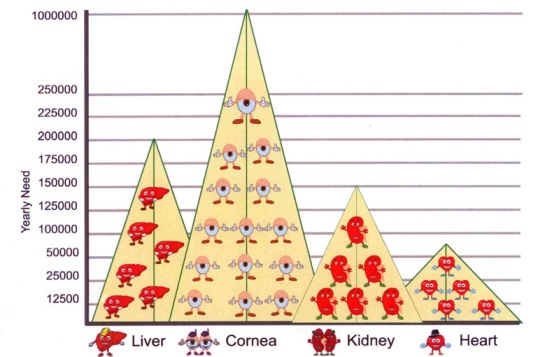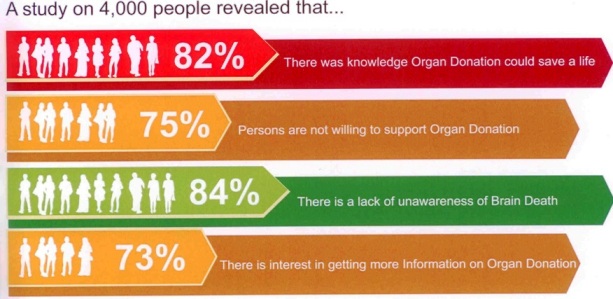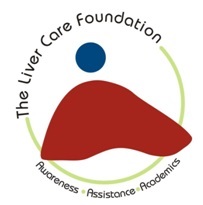Less than 1% in India are estimated to donate their organs after death, as part of a selfless, altruistic act that can save 8 lives if not more. Lack of awareness, lack of education, lack of resources such as logistic support and budgetary constraints are some of the key barriers that have prevented in making available precious organs to allow equitable treatment for all.


Each year half a million in an end-stage organ disease are estimated to die for want of an organ

A study on 4,000 people revealed that 
Promotion of awareness towards organ donation helps in effecting behavioural change: This could be as small as thinking about it, to as large as pledging to be an organ donor and eventually accepting to donate organs for a loved one, if this arises. In order to effect this, trained community counsellors are needed to encourage a positive response towards more registrations.
Following an acceptance to donate, there is a defined process to be followed in orientating coordinators to handle a specific role during day-to-day practices such as : Detection of potential donors; requests for organ donation; sharing and allocation. Each step requires special training to ensure precious organs are not wasted. However, due to lack of financial sanctions and budgetary constraints, this opportunity is missed. It has contributed to the overall low organ donation rate!
Organ donation should have equitable allocation for all people rich or poor, because it is altruistic. However, organ transport post donation costs! This results in inability to fund transport, especially for poor patients belonging to the economically weaker section of society (EWS/BPL), preventing opportunity for a second chance. According to policy, most government hospitals recognize the need to provide treatment within hospital services (such as procedure and investigation) to those patients which does not include financial spend on processes outside hospital services like organ transport or lifelong medication: Both are vital for successful outcomes. It has been witnessed that such patients have missed having an organ transplantation due to their financial inability towards organ transportation costs, especially where air travel is involved. The poor who were lucky to get an outstation organ could only be supported by private donations.
Many a time, emergency transplants are needed for patients such as acute liver failure. Sadly, they have mostly been children and youth who have succumbed due to lack of financial support unless categorized as a bonafide EWS/BPL person. Another area is transplantology where external funding helps in provision of emergency treatment in lifesaving circumstances. India has a young population compared to the west, which is an important fact to protect for a potential workforce and productivity.
Lastly, financing medication costs for poor post-transplant patients helps to make available quality immunosuppressants. Post-transplant patients, struggling financially end up purchasing cheaper immunosuppressants but with questionable quality. This contributes to organ rejection and poorer outcomes.

ILBS
Please contact the Transplant Coordinator's Office at ILBS Phase 2 Room No. 2061 Phone: 46300000 ext 22061 for further assistance
Read More



























